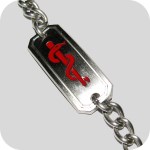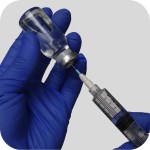
This is why I have put this pre-pregnancy checklist together for you. It is a guide to help you bring your own little one into the world. It advises you what you need to do, why you need to do it and when it needs to be done. I’ve listed the topics at the start as a quick reference and you can click on this list to jump to that information.
- Take Folic Acid
- Stop Contraception
- Regular Sex
- Healthier Lifestyle
- Eat Healthily
- Avoid Food that Reduces Fertility
- Fertility Supplements
- Fertility Friendly Lubricant
- Have A Sexual Health Check
- Book A GP Preconception Appointment
- Discuss Long Term Conditions
- Have Your Medication Reviewed
- Check Your Vaccination History
- Ensure Your Cervical Screening Is Up to Date
- Consider Genetic Testing
Start taking Folic Acid

Folic acid is proven to aid women’s fertility and reduce the chances of miscarriages and birth defects. This makes it the number one item that should be on everyone’s pre-pregnancy checklist. Start taking folic acid supplements at least six weeks before trying to get pregnant for maximum benefit. Men, you can also take folic acid supplements, but this has less of a benefit for you than it does for women.
Learn more about the importance of folic acid and how much you should take by checking out the section: Fertility Supplements for Women
Stop Contraception

Sounds obvious doesn’t it? Stop using birth control if you want to get pregnant. However, it is not always that simple and many of my patients have questions about coming off contraception. Below are the answers to the most common questions that I get asked:
• After coming off the pill, it is perfectly safe to start trying for a baby immediately
• After coming off the pill, it can take up to six months before a woman’s normal cycle returns. The majority though, will have it return within three months
• If you take the pill for irregular or heavy periods, they are likely to return to being irregular or heavy once you stop taking it
• Contraceptive implants and the coil will need to be taken out by a trained doctor
• Contraceptive injections can take up to a year to work their way out of your body and for you to become fertile again
Regular Sex (But Not Every Day)

Contrary to some popular beliefs, having sex every day is not necessarily the best way to get pregnant. In fact, if the man has a low sperm count, it can actually reduce your chances of conceiving. This is because sperm act co-operatively when swimming to the egg and the more in each ejaculation, the further they can swim and the faster they can reach their target. To ensure the man has built up a sufficient stock of sperm, you should only have sex every two to three days. Don’t worry about the gap in between, a man’s sperm can survive for up to five days within the woman and be able to fertilise an egg.
Having sex too often can also turn it into a chore and believe it or not, I hear more complaints from men about this than I do from women.
Live a Healthier Lifestyle

If you want to conceive quickly and have a healthy pregnancy, then you’ll have to cut down on all the partying. But it is not just the partying you have to think about when it come to your lifestyle. Your job, your hobbies, how much exercise you do and even your mobile phone could all potentially impact your reproductive health.
However, it is possible to take lifestyle adjustments too far; stopping all fun activities can make your life very dull and could put you under unnecessary pressure and stress, both of which are bad for conception and the development of your baby. Moderation is the key to a healthy life and good fertility. To learn more about how lifestyle can impact on your fertility, check out the sections Lifestyle Tips to Help Improve Male Fertility and Lifestyle Changes to Increase Female Fertility.
Start Eating Healthily

What you eat has a direct impact on your health and if you want to conceive quickly and have a healthy baby, you need to start eating the right things. It is particularly important that men start living and eating healthily as soon as possible as it takes three months for sperm to grow in their testicles and poor lifestyle and eating habits during this time could damage the developing sperm.
For more information on what you should and shouldn’t be eating while trying to conceive, check out the sections Male Fertility Superfoods and Woman’s Fertility Diet.
Avoid Eating Foods That Reduce Fertility

What you should not be eating is possibly more important for your pre-pregnancy checklist than what you should. Processed meats, non-organic food and even the water you drink could take you longer to get pregnant and if you are on the borderline for fertility already, could stop you conceiving entirely.
Read more about what you should avoid eating while trying to get pregnant in Foods that Ruin Female Fertility and Foods Men Should Avoid When Trying to Conceive.
Consider Taking Fertility Supplements

If you have a healthy lifestyle and diet, then the chances are you don’t need to take fertility supplements as you will already be getting all the nutrients you need (other than folic acid which women should take regardless how good their diet is). But if you are like the rest of us who occasionally indulge in the wrong things, or if you just want peace of mind, then consider boosting your health with fertility supplements.
Start Using Fertility Friendly Lubricants

Fertility friendly lubricants; not just one to add to your pre-pregnancy checklist, but also to your shopping list. Regular lubricants, have been shown to damage sperm and inhibit their motility (the sperm’s ability to swim). This is especially true if the lubricant contains spermicide (an ingredient specifically designed to kill sperm). When planning a baby, make sure you switch to a fertility friendly lubricant.
Family friendly lubricants avoid glycerine (known to be bad for sperm) and mimic a woman’s natural internal environment (pH balanced and Osmolality Matched). If you are unsure if a lubricant is fertility friendly or not, ask your pharmacist.
Sexual Health Check

It’s embarrassing to talk about, but one of the most common causes for conception problems is sexually transmitted diseases. It could have been when you were a young teenager, picking up an STD like chlamydia that is causing you problems 10-15 years later.
If either you or your partner has had unsafe sex with other people in your past, then I recommend you add a visit your local Sexual Health or GUM Clinic (GUM stands for Genito-Urinary Medicine) to your pre-pregnancy checklist.
The service is confidential (you don’t even need to give your real name) and there is no need to be embarrassed as the staff are trained to be understanding and always act with professionalism. I suggest you go together though for moral support.
To learn more about sexually transmitted diseases and how they affect fertility check out the section: STDs and Fertility
If you live in the UK, to find out more about testing and to find your local clinic click on this link to the NHS website: Visiting an STD Clinic.
Book a Preconception Appointment with Your Doctor

A preconception check-up with your doctor before you try to conceive is not a necessary part of your pre-pregnancy checklist, but it is recommended if you have any concerns. In particular, it is important to discuss any long term medical conditions you may have, any medication you are taking and if you are a woman, to have your vaccinations checked and make sure your cervical screening is up to date. I’ll discuss these pre-pregnancy checklist items in more detail below.
Discuss Any Long-Term Medical Conditions

If either of you have a long-term medical condition (also referred to as a chronic condition), it could affect your chances for getting pregnant and might cause complications during the pregnancy. If you or your partner have a long term condition, make sure you see your doctor before trying to conceive so they can discuss with you any potential impact and how you can best avoid anything bad happening.
Have Your Medication Reviewed

Some medications can make getting pregnant difficult, while others can cause developmental problems in babies. If you take any regular medication, it is advisable to discuss your plans for pregnancy with your doctor, so add it to your pre-pregnancy checklist. They will be able to discuss any specific risks associated with them and may wish to change your medication to a safe alternative.
IMPORTANT: Do not stop taking any medicine prescribed to you by your doctor without consulting with them first!
Check Your Vaccination History

Because women are the ones that carry the developing baby for nine months, in order to ensure a healthy and trouble free pregnancy, their vaccination history is something that they really should have checked out before starting to try conceiving.
• Vaccinations can prevent diseases that cause developmental problems in babies
• Vaccination against these diseases at childhood can vary by country
• Sometimes childhood vaccinations can accidentally be missed
• If you are unsure, call your doctors practice/surgery, who can advise you on your vaccination history
The most important vaccination to be covered for is Rubella (also known as German Measles). This could have been given as part of the MMR vaccination, or administered separately. While this infection is rarely serious in an affected adult, it can have devastating consequences for a developing baby. If the infection occurs in the first 20 weeks of pregnancy, up to 90% of babies will have developmental problems, such as heart problems, deafness, visual problems and intellectual impairment.
If it is not clear whether or not you have been vaccinated, the doctor may advise a blood test to check your immunity or offer a vaccination. It is important to get this done in advance as it is advised to avoid getting pregnant within one month of vaccination.
If you are already pregnant, don’t panic. Thanks to childhood immunisation programmes, your chances of getting Rubella are low. Though once you have had your baby, it is advisable that you get yourself vaccinated if you haven’t been already.
Check Your Immunity to Chicken Pox

Chicken Pox, also known as Varicella infection, can cause developmental problems if contracted during the first 20 weeks of pregnancy. While it is not routinely vaccinated against in most countries, if you have already had it, you are usually protected against future infection for life.
If you aren’t immune and are pregnant, should you come into contact with someone who has Chicken Pox, speak to your doctor immediately. If necessary, there are treatments available to prevent you developing the illness, provided they are started early enough.
Make Sure Your Cervical Screening is Up-To-Date

If you haven’t had a smear test in the last three years, or your next smear is due within the next six months, add it to your it to your pre-pregnancy checklist and book an appointment to have one done before you start trying to get pregnant.
It is important that you have a smear test before you become pregnant as the results are difficult to interpret once you are pregnant and if abnormalities are found, treatment would have to wait until after the baby has been born.
If you live in the UK, smear tests are not usually performed on women under the age of 25, because cervix problems under that age are very rare. However, if you are under 25 and are worried about your cervix, book an appointment to see your doctor so they can talk to you about your specific situation.
Genetic Testing

If you, your partner, or one of your relatives has a known genetic disorder, you may want to consider adding genetic testing to your pre-pregnancy checklist to make sure you don’t pass on any defective genes to your children. The more common genetic disorders include cystic fibrosis, sickle cell disease, thalassemia, haemophilia and Tay-Sachs disease, but there are many more. If either of you or a relative suffer from a genetic disorder, then ask your doctor about genetic testing.
What Else Should I Consider With a Pre-Pregnancy Checklist?
If you have been trying to get pregnant for a while, when you see your doctor, you should advise them just how long you have been trying. They will ask additional questions that they might not have if you were just going for a preconception appointment. To learn more about what your doctor will discuss if you have already been trying to conceive, check out: What to expect when you see your doctor about getting pregnant.
Links to Popular Related Pages







